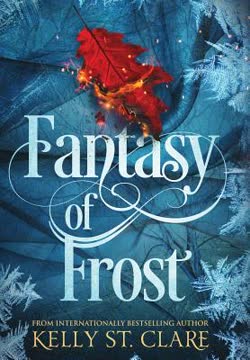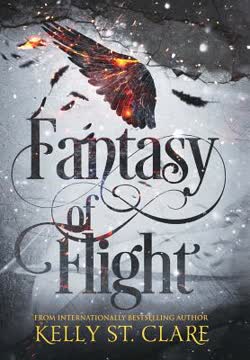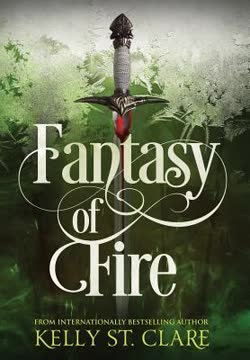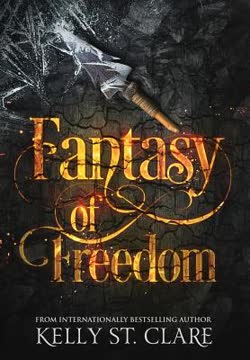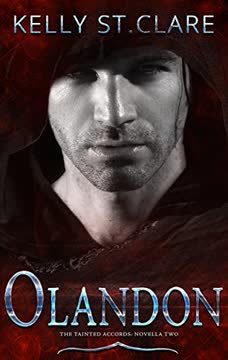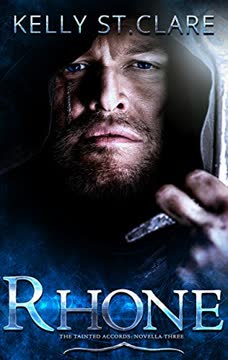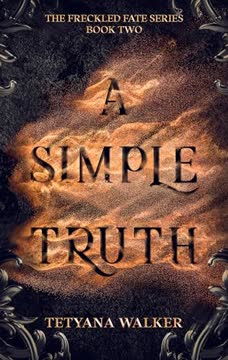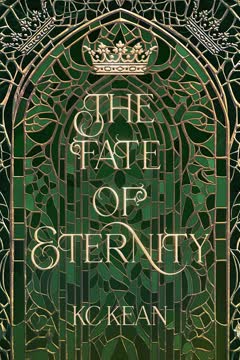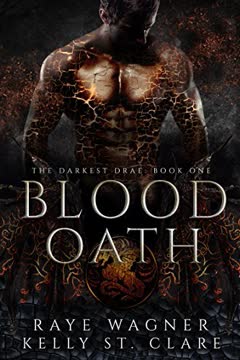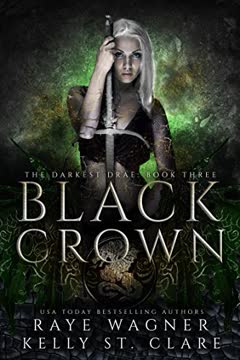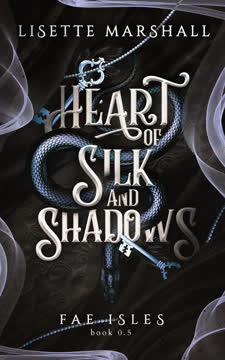Plot Summary
Interworld Games Begin
The Interworld Games are about to commence, drawing together the three worlds—Glacium, Osolis, and the Ire—in a rare moment of peace and competition. Shard, once a pit fighter and now an advisor, sits beside Queen Lina and King Jovan, observing the preparations and the joyful chaos brought by the royal baby, Kendra. The Games are more than sport; they are a symbol of hard-won unity after years of war. Yet, beneath the surface, personal tensions simmer. Shard's longing for a family of his own is sharpened by the happiness around him, and his unspoken love for Arla, a woman as enigmatic as she is beautiful, colors his every thought. The stage is set for both public spectacle and private struggle.
Shard's Unrequited Longing
Shard's heart aches for Arla, whose icy demeanor and sharp tongue mask deep wounds. Despite his unwavering devotion, Arla keeps him at arm's length, her affections reserved for others or hidden behind biting words. Shard's patience is tested as he tries to understand her, believing that time and kindness will eventually win her over. Yet, doubts gnaw at him—does she truly care, or is he simply a convenient confidant? Their interactions are a dance of vulnerability and defense, with Shard offering steadfast support and Arla rebuffing him, sometimes cruelly. The pain of loving someone who cannot—or will not—love him back threatens to erode his hope.
Arla's Walls and Wounds
Arla is a product of her upbringing: her father, Drummond, is ambitious and controlling, pushing her toward advantageous marriages and teaching her to wield power through manipulation. Shard sees through her armor, recognizing the hurt child beneath the surface. Their conversations reveal Arla's internal conflict—she wants to be loved for herself, not as a pawn in her father's schemes, but she fears vulnerability. Shard's persistence is both a comfort and a challenge, forcing her to confront feelings she's long buried. Theirs is a relationship defined by tests, misunderstandings, and the slow, painful process of trust.
The Ball and Broken Hearts
The welcome ball for the Games is a swirl of color, music, and political posturing. Shard, nursing his wounds with drink, watches Arla dance with other men, her indifference cutting deeper than any blade. Friends and rivals alike notice his misery, offering advice or mockery in equal measure. The ball becomes a crucible for Shard's emotions—his love for Arla, his frustration with her games, and his resentment toward her father all boil over. The night ends in drunken regret, with Shard questioning whether his devotion is foolishness or courage, and whether he can continue to endure Arla's rejection.
Drunken Confessions and Regrets
Shard awakens in unfamiliar surroundings, piecing together the previous night's humiliations with the help of his loyal friend Avalanche. The castle buzzes with rumors of his escapades, and Shard is forced to confront the consequences of his actions—both the public spectacle and the private pain. Encounters with Arla and her father are fraught with tension, as old wounds are reopened and new ones inflicted. Shard's sense of self-worth is battered, but his resolve hardens. He realizes that love, to be real, must be reciprocated, and that he cannot save Arla if she refuses to meet him halfway.
The Challenge is Set
Arla, ever the strategist, proposes a solution to her father's opposition: she will offer her hand in marriage to the winner of the Interworld Games, believing that victory will grant Shard the prestige needed to win Drummond's approval. Shard is blindsided by the proposal—he is not even a competitor, and the plan reeks of manipulation. Yet, the glimmer of hope that Arla might choose him if he wins is enough to spur him into action. The challenge becomes more than a contest of strength; it is a crucible for Shard's love, pride, and identity.
Trials in the Dome
The Games begin in earnest, with Shard joining the ranks of the world's best fighters. Each event—agility, strength, accuracy, and more—tests not only physical prowess but also mental resilience. Shard battles old friends and new rivals, his every move watched by Arla, Drummond, and the assembled courts. The pressure mounts as he advances through the rounds, his performance scrutinized as a measure of his worthiness. The camaraderie among the fighters is laced with rivalry, and the stakes are personal as well as political. Shard's determination is fueled by love, but also by the need to prove himself to a world that still sees him as the son of a whorehound.
Allies, Rivals, and Revelations
As the Games progress, Shard's relationships with his fellow competitors deepen. Avalanche, Ice, Blizzard, and others provide support, banter, and perspective, reminding Shard that he is not alone in his struggles. The Games become a microcosm of the larger world—alliances are forged, rivalries tested, and personal demons confronted. Shard's skill with daggers and his strategic mind earn him respect, but his heart remains troubled. Conversations with friends and foes alike force him to examine his motivations, his past, and his hopes for the future. The Games are not just a test of strength, but of character.
Arla's Secret Plan
The truth behind Arla's plan emerges: she has orchestrated the tournament as a way to outmaneuver her father, believing that a public victory will force Drummond to accept Shard as a suitor. Yet, the plan is fraught with risk and emotional cost. Arla's inability to express her feelings directly leaves Shard in a state of uncertainty, unsure whether he is fighting for love or simply being used as a pawn. Their confrontations grow more intense, as Shard demands honesty and Arla struggles to articulate her desires. The tension between agency and manipulation, love and pride, comes to a head.
The Games Intensify
The competition narrows, with Shard advancing to the finals in multiple categories. The physical challenges are matched by emotional ones, as Shard and Arla's relationship reaches a breaking point. A night of vulnerability—where Arla tends to Shard's wounds and they share a rare moment of intimacy—offers hope, but is quickly followed by renewed conflict. Arla's fear of defying her father and embracing her own happiness threatens to undo everything. Shard, exhausted by the endless tests and maybes, contemplates giving up, realizing that love cannot be sustained by one person alone.
Night of Vulnerability
In a rare moment of openness, Arla invites Shard into her private world, tending to his injuries and allowing herself to be vulnerable. They share confessions, apologies, and a tentative kiss, hinting at the possibility of a future together. Yet, the morning brings a return to old patterns—Arla's fear and pride reassert themselves, and she pushes Shard away once more. The cycle of hope and disappointment leaves Shard raw and uncertain, questioning whether he can continue to fight for someone who cannot choose him without reservation.
The Final Confrontation
The climax arrives as the Games conclude and the winners are announced. Shard, having fought with everything he has, finds himself among the top competitors. In a public confrontation, Arla's plan is exposed, and she is forced to admit her motivations and fears before the assembled courts. Drummond's ambitions and prejudices are laid bare, and the queen herself intervenes to defend Shard's worth. In the crucible of public scrutiny, Arla finally confesses her love, choosing Shard not as a prize to be won, but as a partner to be cherished. The cycle of manipulation and fear is broken by honesty and courage.
Love, Choice, and Freedom
With the Games over and the truth revealed, Shard and Arla are free to choose each other without pretense or coercion. Drummond's opposition is rendered powerless, and the couple's union becomes a symbol of personal and political reconciliation. The Interworld Games, once a stage for rivalry and ambition, become a celebration of unity, love, and hope for the future. Shard and Arla, having navigated the labyrinth of their own hearts, embrace a new life together—one built on mutual respect, vulnerability, and the hard-won freedom to love.
Epilogue: New Beginnings
In the aftermath of the Games, Shard and Arla settle into a life of quiet contentment, surrounded by friends and allies. The wounds of the past are not forgotten, but they are healed by the promise of a better future. The worlds, once divided by war and prejudice, are united in celebration, and the next generation—embodied by Kendra and the children to come—offers hope for lasting peace. Shard and Arla's journey, marked by pain and perseverance, becomes a testament to the power of love to overcome even the deepest scars.
Characters
Shard
Shard is a man forged by hardship—a former pit fighter from the Outer Rings, marked by a brutal childhood and a father's cruelty. His journey from the margins of society to advisor of the king and queen is a testament to his intelligence, resilience, and capacity for growth. Shard's defining trait is his unwavering loyalty, both to his friends and to Arla, the woman he loves with a devotion bordering on self-sacrifice. His psychological complexity lies in his struggle to reconcile his past with his present, to believe in his own worth, and to demand respect and reciprocity in love. Shard's arc is one of self-discovery, as he learns that true love requires both vulnerability and boundaries.
Arla
Arla is a woman shaped by her father's ambitions and the rigid expectations of court life. Her beauty and wit are matched by a fierce intelligence, but her emotional life is a tangle of fear, pride, and longing. Arla's primary defense is her "ice mask"—a persona of indifference and control that shields her from pain but also isolates her from genuine connection. Her relationship with Shard is a battleground of trust and self-protection, as she tests his devotion while struggling to admit her own feelings. Arla's development is marked by the slow, painful process of shedding her defenses and choosing vulnerability over manipulation.
Drummond
Drummond, Arla's father, is a powerful advisor whose life is defined by the pursuit of status and legacy. His love for Arla is genuine but warped by his belief that her value lies in her ability to secure advantageous alliances. Drummond's psychological rigidity blinds him to his daughter's needs, and his attempts to control her ultimately backfire. His arc is one of reluctant reckoning, as he is forced to confront the consequences of his ambition and the pain he has caused. Drummond embodies the dangers of conflating love with control and ambition with happiness.
Queen Lina
Lina is both a loving mother and a shrewd ruler, balancing the demands of leadership with the joys and challenges of family life. Her empathy and insight make her a trusted confidante to Shard, while her strength and decisiveness command respect. Lina's own history of overcoming trauma informs her approach to others, and she serves as a mirror and mentor to those struggling with their own wounds. Her psychological depth lies in her ability to hold space for both compassion and accountability, urging those she loves to grow without enabling their self-doubt.
King Jovan
Jovan is a king who leads with both strength and warmth, fiercely protective of his family and people. His relationship with Lina is a model of partnership, and his interactions with Shard and Arla are marked by a blend of authority and camaraderie. Jovan's humor and humanity ground the narrative, while his willingness to challenge tradition signals a new era for Glacium. Psychologically, Jovan represents the possibility of power wielded with integrity and love.
Avalanche
Avalanche is Shard's closest friend, a hulking former pit fighter whose physical strength is matched by emotional steadiness. He provides comic relief, practical advice, and unwavering support, serving as a touchstone for Shard throughout his trials. Avalanche's own journey from the margins to acceptance mirrors Shard's, and his presence underscores the importance of chosen family. His psychological role is that of the loyal confidant, offering perspective and grounding in moments of crisis.
Blizzard
Blizzard is a minister of the people, known for his sharp tongue and keen observations. He challenges Shard and others to confront uncomfortable truths, often using humor to defuse tension. Blizzard's role is that of the provocateur, pushing those around him to question their assumptions and grow. His psychological function is to disrupt complacency and encourage self-reflection.
Ice
Ice is another of Shard's friends from the pits, known for his directness and dry wit. He provides levity and perspective, often cutting through emotional turmoil with a well-timed joke or observation. Ice's loyalty and resilience make him a valuable ally, and his presence highlights the importance of community in overcoming adversity.
Sin
Sin, the master of ceremonies for the Games, is a figure of transformation—once a womanizer and troublemaker, now devoted to his wife Lorna and a respected leader. His charisma and showmanship enliven the narrative, while his personal growth serves as a model for change. Sin's psychological journey is one of redemption, demonstrating that even the most flawed individuals can find purpose and love.
Lorna
Lorna, Sin's wife, is a figure of quiet resilience and grace. Her presence is a stabilizing force, both for Sin and for others in the court. Lorna's wisdom and empathy make her a confidante to Arla and others, and her own journey from fragility to strength mirrors the broader themes of healing and transformation.
Plot Devices
The Interworld Games
The Interworld Games serve as the central narrative device, providing both the literal arena for competition and the metaphorical stage for character development. The Games are a test of strength, skill, and strategy, but also a means of forging unity among the worlds and resolving personal conflicts. The structure of the Games—elimination rounds, finals, and public spectacle—mirrors the internal journeys of the characters, with each event serving as a catalyst for growth, revelation, or confrontation. The Games also function as a plot device for social mobility, allowing Shard to challenge the prejudices of birth and class.
The "Ice Mask" and Emotional Barriers
Arla's "ice mask" is a recurring motif, representing the psychological defenses she has built to survive in a world of manipulation and expectation. The gradual melting of this mask parallels her journey toward vulnerability and authentic connection. The motif is echoed in Shard's own emotional barriers, forged by trauma and reinforced by rejection. The interplay of masks and revelations drives the emotional arc of the story, with moments of honesty serving as turning points.
Tests and Trials
The physical trials of the Games are paralleled by emotional and relational tests—of patience, trust, and self-worth. Each event in the Dome is both a literal contest and a metaphor for the characters' internal battles. The narrative structure uses these trials to build tension, reveal character, and force choices, culminating in the final confrontation where personal and public stakes converge.
Public vs. Private Identity
The story repeatedly contrasts public spectacle (the Games, the ball, court politics) with private vulnerability (confessions, moments of intimacy, personal reckoning). This device highlights the difficulty of authentic connection in a world obsessed with status and perception, and underscores the courage required to choose love and truth over manipulation and fear.
Foreshadowing and Repetition
The narrative employs foreshadowing—through dialogue, motifs, and recurring conflicts—to build anticipation and deepen the emotional impact of key moments. Repeated patterns (Arla's tests, Shard's patience, Drummond's control) create a sense of inevitability, making the eventual breakthroughs feel both surprising and earned.
Analysis
"Shard" is a story about the struggle to love and be loved in a world shaped by trauma, ambition, and rigid expectations. At its heart, the novella explores the tension between vulnerability and self-protection, asking whether true intimacy is possible when both parties are scarred by the past. Through the lens of the Interworld Games—a grand spectacle of unity and rivalry—the narrative examines the ways in which public achievement and private longing intersect. Shard's journey from self-doubt to self-respect, and Arla's from manipulation to honesty, reflect the broader themes of healing, agency, and the courage to choose one's own path. The story critiques the conflation of love with control, and ambition with happiness, urging readers to recognize the value of authenticity, mutual respect, and emotional risk. Ultimately, "Shard" is a testament to the transformative power of love—not as a prize to be won, but as a partnership forged through struggle, choice, and the willingness to be seen.
Last updated:
Review Summary
Shard by Kelly St. Clare received mixed reviews, with an average rating of 4.06 out of 5. Many readers enjoyed revisiting the Tainted Accords world and seeing familiar characters. However, opinions were divided on the main romance between Shard and Arla. Some found it unconvincing, while others appreciated the character growth. The Interworld Games were a highlight for many. Despite criticisms of Arla's character, fans of the series generally found it a satisfying conclusion, though some wished for more depth in the novella.

